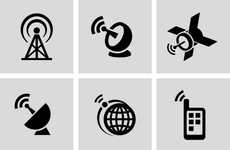
Interplanetary Internet
Bianca — October 17, 2007 — Pop Culture
References: physorg
The internet is about to go where no network has gone before. A news article reported that there are plans to send the World Wide Web into deep space.
Is this an attempt to pick up alien signals?
The “interplanetary” Internet project will involve sending internet signals into orbit to let researchers “access information and to control experiments taking place far away.”
This really sounds like UFO monitoring to me.
The plan is to expand the existing web further into the solar system, a project that would come with its own set of rules and regulations. To protect us from finding out about extraterrestrial life, I assume.
At a conference in Korea, a Google rep said, “This effort is now bearing fruit and is on track to be space qualified and standardized in the 2010 time frame.
“Eventually we will accumulate an interplanetary backbone to assist robotic and manned missions with robust communication.
“Eventually,” he added, “the entire world will have access to the services that are available on the Internet.”
The internet is growing at an incredible rate: Asia has over 436 million users, Europe has 321 million, and in Europe, there are 233 people hooked up to the web.
Before they can conquer the solar system, they still have some work to do on Earth. Check out the trend on ICANN, the company that wants to begin including domain names in 11 languages outside of the Roman alphabet:
Is this an attempt to pick up alien signals?
The “interplanetary” Internet project will involve sending internet signals into orbit to let researchers “access information and to control experiments taking place far away.”
This really sounds like UFO monitoring to me.
The plan is to expand the existing web further into the solar system, a project that would come with its own set of rules and regulations. To protect us from finding out about extraterrestrial life, I assume.
At a conference in Korea, a Google rep said, “This effort is now bearing fruit and is on track to be space qualified and standardized in the 2010 time frame.
“Eventually we will accumulate an interplanetary backbone to assist robotic and manned missions with robust communication.
“Eventually,” he added, “the entire world will have access to the services that are available on the Internet.”
The internet is growing at an incredible rate: Asia has over 436 million users, Europe has 321 million, and in Europe, there are 233 people hooked up to the web.
Before they can conquer the solar system, they still have some work to do on Earth. Check out the trend on ICANN, the company that wants to begin including domain names in 11 languages outside of the Roman alphabet:
Trend Themes
1. Interplanetary Internet - Developing internet signals sent into orbit for deep space research opens innovation opportunities in space-based communication and information sharing.
2. Robust Communication Systems - Efforts to develop an interplanetary backbone can enable robust communication systems for manned and robotic space missions.
3. Multilingual Domain Names - ICANN's move to include domain names in languages outside of the Roman alphabet can disrupt the domain industry and create more inclusivity for non-English speakers on the web.
Industry Implications
1. Space Exploration - Developing an interplanetary internet and communication backbone opens up more opportunities for space exploration and discovery.
2. Telecommunications - Enhanced space-based communication systems and interplanetary internet can disrupt the telecommunications industry, enabling more reliable space communication channels.
3. Online Domains - ICANN's move to include domain names in non-Roman alphabets creates innovation opportunities for domain companies to create and manage domains in multiple languages.
1
Score
Popularity
Activity
Freshness























